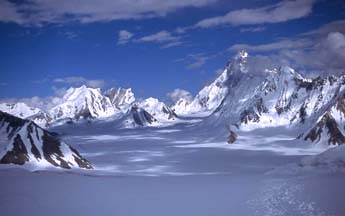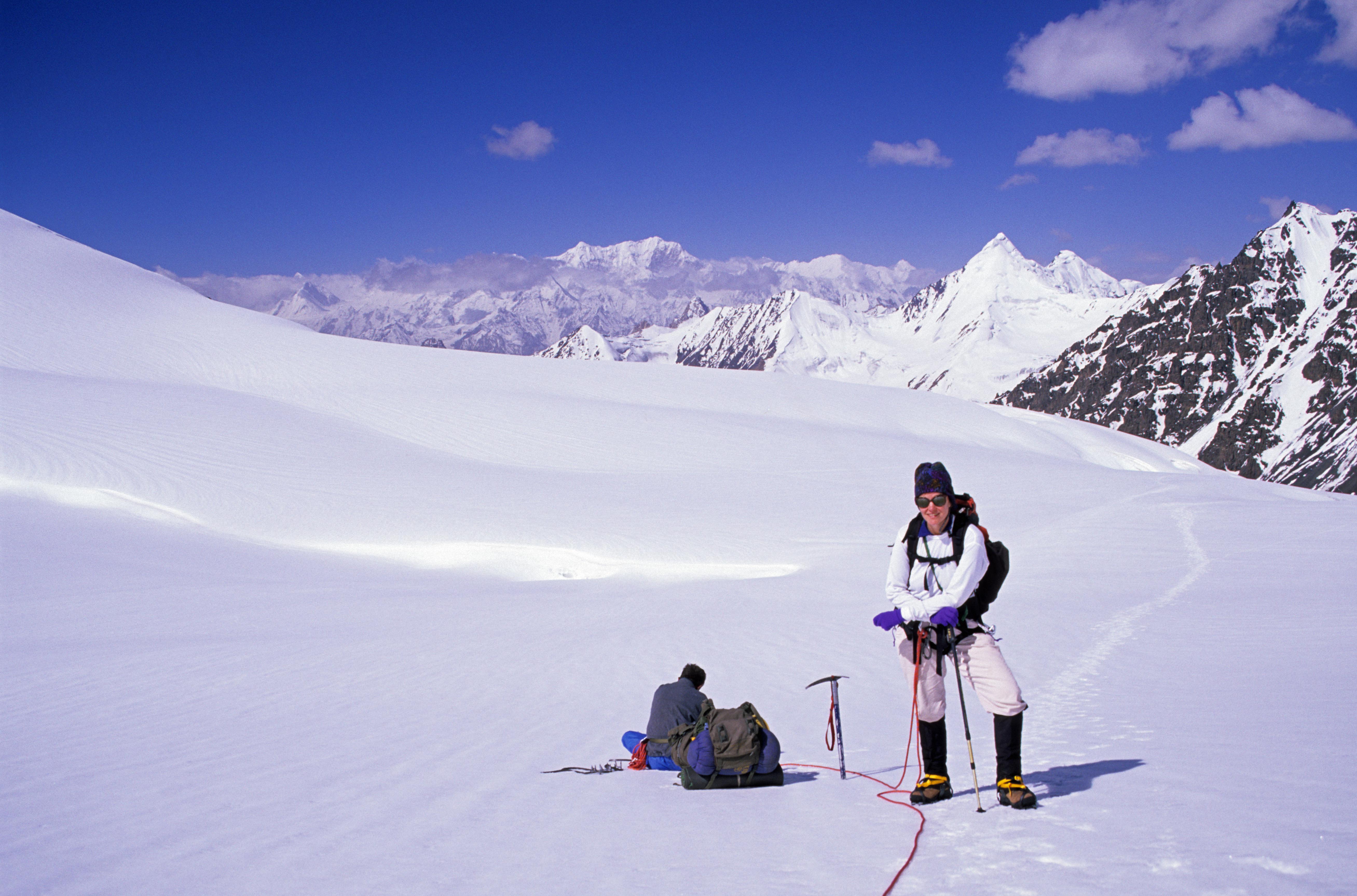|
- expanded four-page table with easy-to-read columns that
summarize 55 detailed treks - describing each trek’s duration, grading, best
season, zone and permit requirements, the availability of public
transportation, main features - and giving the page reference for each trek’s
detailed description
- expanded information to help trekkers decide where to go
- including a Highlights section that groups treks into themes and a
Suggested Itineraries section that provides recommendations for fixed lengths
such as two weeks or one month
- detailed Clothing, Equipment and Food Check Lists presented in easy-to-read tables
- new and informative illustrations such as the two-page
Glacial Landforms which explains the features trekkers encounter in these
rugged mountains
- a simplified and enhanced grading system that explains
each trek’s level of difficulty and displays an easily-identifiable symbol
for any treks requiring technical mountaineering skills
- three special sections illustrated with unique graphic
design and colour images - Flora
of the Karakoram & Hindukush, Kalasha Valleys, and Baltoro Glacier Treks
- improved and completely redrawn maps including:
- a two-page colour map of the Karakoram and Hindukush region
- new regional maps at the start of each regional trekking chapter for quick
orientation
- two-colour trekking maps throughout, many at enhanced scales
- a Fact Box for each trek that gives a concise overview
of the trek, including its duration in hours or days, total distance in
kilometres, level of difficulty, best season, start and finish points, zone
and permit requirements, availability of public transport, along with a brief
summary
- a summary line for each day of every trek gives the
duration in hours, daily trekking distance in kilometres, and the day’s
elevation ascent and descent in metres
- a numbered listing of stages for each trek to facilitate
negotiation of wages and payment between trekkers and porters
- new Gojal chapter that features:
- the Werthum Pass trek with many climbing possibilities
- a new section on Shimshal with six expanded treks, and two new treks - the Qachqar-e-Dur
& Shpodeen Pass trek, and the Mai Dur Pass trek
- a full description of the now-open route to Misgar’s Kilik and Mintaka Passes
- trek descriptions designed to facilitate mountaineering
expeditions getting to base camp - thirty percent of the treks describe
routes or side trips - marked by an easily-identifiable symbol - to a major
base camp, including 18 different 7000-metre peak base camps, and five
8000-metre peak base camps
- for peak-baggers most treks also mention access to
5000-metre and 6000-metre peak base camps
- summaries of more than 75 additional treks appear in the
Other Treks section of each six regional trekking chapters to whet trekkers’
appetites and offer additional exciting possibilities
- a new Mountaineering appendix that presents an overview
of government rules, procedures to apply for a permit, a summary of fees and
royalties, and contact information for guided climbs
|
|








